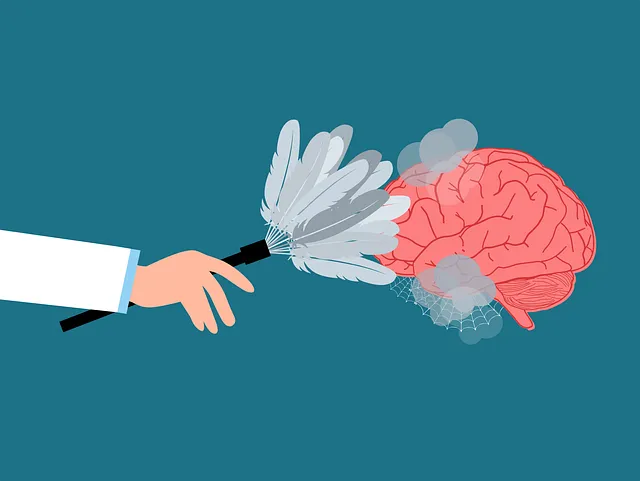Mental health policy advocacy is crucial for enhancing access to quality therapy services. The Lafayette and Kaiser models demonstrate effective strategies, with Kaiser integrating therapists into primary care, improving therapist availability and promoting holistic mood management. Governments can drive mental health improvements through policies focusing on education, early interventions, stigma reduction, and accessible public healthcare. Advocacy involves analyzing existing policies, community input, and comparing service quality to identify gaps. Case studies like Lafayette's show that leveraging patient voices, burnout prevention, and collaborative techniques drives policy changes for better therapist retention and access to care.
Mental health policy advocacy is a powerful tool for driving systemic change and improving access to quality care. This comprehensive analysis explores various aspects of mental health governance, from understanding policy fundamentals to evaluating their impact. We delve into innovative models like the Kaiser approach, examining its potential for enhancing therapy accessibility. Furthermore, we highlight the government’s pivotal role in fostering mentally healthy communities and provide strategies for effective policy analysis. Success stories and case studies inspire action, demonstrating that advocacy can lead to positive transformations, ensuring better support for individuals seeking mental health services, including those in Lafayette considering the Kaiser model for quality therapists.
- Understanding Mental Health Policy: A Foundation for Advocacy
- Access to Quality Therapy: Exploring the Kaiser Model
- The Role of Government in Mentally Healthy Communities
- Strategies for Effective Mental Health Policy Analysis
- Advocating for Change: Case Studies and Success Stories
Understanding Mental Health Policy: A Foundation for Advocacy

Mental health policy advocacy begins with a profound understanding of the intricate landscape shaping individuals’ emotional well-being. Policies, like those offered by Lafayette or Kaiser, play a pivotal role in determining access to quality mental healthcare services. These policies influence not just the availability of therapists but also the types of therapies and support systems offered, directly impacting individuals’ ability to seek help and recover.
Advocacy efforts must consider the broader social and cultural contexts that shape mental health discourse. Promoting positive thinking and compassion cultivation practices, for instance, can be integral parts of policy recommendations. By fostering emotional intelligence and understanding within communities, policies can create environments conducive to early intervention and recovery. This, in turn, ensures that individuals like those seeking therapists at Kaiser have comprehensive support systems available to them.
Access to Quality Therapy: Exploring the Kaiser Model

In Lafayette, the Kaiser Model stands out as a promising approach to enhancing access to quality therapy. This model prioritizes community-based healthcare, leveraging a network of providers to ensure that residents have convenient and affordable access to mental health services. By integrating therapists into local primary care settings, Kaiser aims to reduce barriers to treatment, making it easier for folks in Lafayette to seek help when needed. The model’s focus on proactive care aligns with the growing emphasis on public awareness campaigns and development of stress management workshops within the community, fostering a culture of mental well-being.
Moreover, the Kaiser Model encourages collaboration between therapists and other healthcare professionals, promoting holistic mood management strategies. This comprehensive approach not only addresses acute mental health concerns but also equips individuals with long-term coping mechanisms. As Lafayette continues to navigate the landscape of mental health care, exploring successful models like Kaiser can significantly contribute to improving access, quality, and outcomes for those seeking support in managing their mental health.
The Role of Government in Mentally Healthy Communities

In fostering mentally healthy communities, governments play a pivotal role in shaping policies and providing resources that either promote or hinder emotional well-being. One notable example is the availability and accessibility of mental health services, such as those offered by Kaiser in Lafayette, where the quality of therapists can significantly impact community mental health outcomes. Effective government interventions include implementing Emotional Well-being Promotion Techniques like universal access to mental health education, early intervention programs, and robust public healthcare systems that ensure affordability and continuity of care.
Additionally, governments should actively engage in Mental Illness Stigma Reduction Efforts, as stigma remains a significant barrier to treatment-seeking behavior. This can be achieved through public awareness campaigns, policy changes that protect individuals with mental illness from discrimination, and the integration of mental health services into primary healthcare settings. By prioritizing Mental Health Awareness and addressing associated stigmas, governments contribute to creating supportive environments where individuals feel empowered to seek help and recover.
Strategies for Effective Mental Health Policy Analysis

Mental health policy analysis requires a multifaceted approach to effectively advocate for improved services and support. Firstly, examining existing policies and their impact is crucial. This involves delving into data, research, and community feedback to identify gaps and areas for enhancement, such as assessing if organizations like Lafayette or Kaiser have good therapists available. By comparing service quality and accessibility, advocates can pinpoint specific challenges and formulate targeted strategies.
Additionally, incorporating evidence-based practices and innovative solutions is essential. This includes promoting Stress Management Workshops Organization programs that teach individuals coping mechanisms and fostering Cultural Sensitivity in Mental Healthcare Practice to ensure diverse communities feel welcomed and supported. Further, advocating for Trauma Support Services ensures those with complex mental health needs receive comprehensive care tailored to their unique experiences.
Advocating for Change: Case Studies and Success Stories

Advocating for mental health policy changes can be a powerful tool to create sustainable impact. Examining case studies offers valuable insights into successful advocacy campaigns. For instance, the story of Lafayette and Kaiser highlights effective strategies. By amplifying patient voices through mental wellness podcast series production, they sparked awareness about access to quality therapists within their insurance network. This approach not only addressed the concern of Lafayette does Kaiser have good therapists? but also led to policy revisions prioritizing better therapist retention and availability.
Furthermore, these initiatives extend beyond individual stories. Implementing burnout prevention strategies for healthcare providers is a comprehensive approach to mental health advocacy. Incorporating conflict resolution techniques during policy discussions fosters collaborative environments, ensuring diverse perspectives are considered. Such methods have proven effective in navigating complex systems, ultimately leading to positive changes in mental health care policies and improved access to essential services.
Mental health policy analysis and advocacy are vital components in fostering mentally healthy communities. By understanding the complexities of mental health policies, exploring innovative models like the Kaiser approach, and recognizing the government’s role, we can develop effective strategies to improve access to quality therapy. The case studies presented offer a glimpse into successful advocacy efforts, highlighting the impact of passionate individuals and organizations. As we navigate these complex issues, it is essential to remember that Lafayette, and other regions, can benefit from implementing proven policies, ensuring that everyone has access to the supportive care they deserve, including Kaiser’s promising therapist services.






